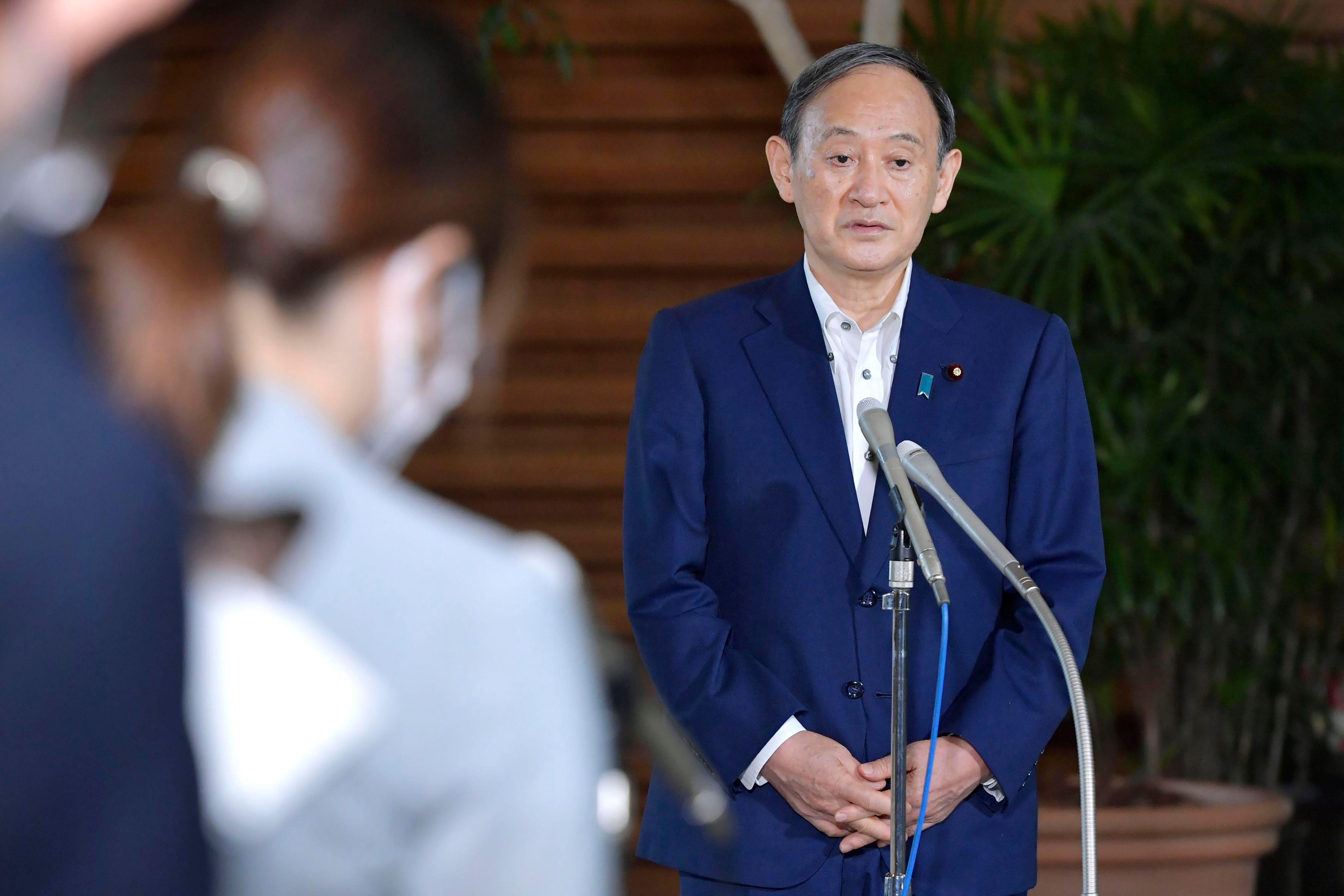Suga ally loses in key local race ahead of national election
A close ally of Japanese Prime Minister Yoshihide Suga has been defeated in a high-profile mayoral election in Yokohama, Suga’s home turf, in a sharp setback for the already unpopular leader ahead of general elections later this year

Your support helps us to tell the story
From reproductive rights to climate change to Big Tech, The Independent is on the ground when the story is developing. Whether it's investigating the financials of Elon Musk's pro-Trump PAC or producing our latest documentary, 'The A Word', which shines a light on the American women fighting for reproductive rights, we know how important it is to parse out the facts from the messaging.
At such a critical moment in US history, we need reporters on the ground. Your donation allows us to keep sending journalists to speak to both sides of the story.
The Independent is trusted by Americans across the entire political spectrum. And unlike many other quality news outlets, we choose not to lock Americans out of our reporting and analysis with paywalls. We believe quality journalism should be available to everyone, paid for by those who can afford it.
Your support makes all the difference.A close ally of Japanese Prime Minister Yoshihide Suga was defeated in a high-profile mayoral election in Yokohama Suga's home turf, in a sharp setback for the already unpopular leader ahead of general elections later this year.
Opposition-backed scientist Takeharu Yamanaka comfortably beat Suga confidante Hachiro Okonogi in an eight-candidate race with support from voters critical of the governing party's pandemic response and its backing of plans for a waterfront casino in the city.
“The result was very unfortunate,” Suga said Monday. “I understand it was the voters' judgment over the pandemic and other issues in the city, and I take it humbly.”
Okonogi’s defeat adds another election loss for Suga, whose favored candidates have been winless in local elections since he took office last September. Sunday's result is expected to further weaken his grip on power within the governing Liberal Democratic Party ahead of lower house elections that need to be held by Nov. 28.
LDP candidates lost three parliamentary byelections earlier this year. In the Tokyo metropolitan assembly election in July, the party failed to win back many of the seats it lost to Gov. Yuriko Koike’s local party in the previous election.
LDP parliamentary affairs committee chief Hiroshi Moriyama said local elections won’t affect national election results, but opposition groups were emboldened by Sunday’s victory.
“We have demonstrated that opposition parties can achieve a landslide victory when we become one solid bloc,” said Jun Azumi, a senior lawmaker of the largest opposition group, the Constitutional Democratic Party of Japan.
Yamanaka, 48, a former professor at Yokohama City University with no political experience, was backed by three liberal-leaning opposition parties: the Constitutional Democrats, the Japanese Communist Party and the Social Democratic Party.
Yamanaka has analyzed vaccine efficacy on coronavirus variants and is critical of Suga’s lax virus measures. He opposes the city’s divisive plan to build a casino on oceanfront property.
Suga has faced criticism for insisting that the country go ahead with hosting the Tokyo Olympics and Paralympics despite strong public opposition due to concerns about the pandemic. Recent media surveys show that his public support ratings have slid below 30% from around 70% soon after he took office.
Suga became prime minister by replacing Shinzo Abe who resigned because of health issues, promising to continue his policies while filling in as party leader until the end of his term in September.
Suga has repeatedly said he plans to run for another term. “I have said it is only natural to run when the time comes, and there is no change in that plan,” Suga said Monday.
Tokyo has been under emergency measures most of this year, most recently since July 12, but new daily cases have increased more than tenfold since then to about 5,000 in Tokyo and 25,000 nationwide, quickly filling up hospital beds and forcing many people, some requiring supplementary oxygen, to recover at home.